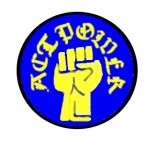The lack of understanding of what the Tunisian political crisis represents has been alarmingly evident in the media coverage of it. Journalists have said such inanities as “until a couple of days ago Tunisia was a beacon of stability in the region…” and raised the possibility of a so-called ripple effect spreading from Tunis to other North African states. They have called the popular uprising against the ousted president Ben Ali the “Jasmine Revolution,” thereby demonstrating their profound ignorance of what a revolution really is. The truth is that Tunesia was a small powder keg waiting to blow but no one wanted to state the obvious about it, and when it did blow the reaction has been to over-estimate its magnitude and repercussive effects.Â
Let me dispel some of these misrepresentations. First, the uprising in Tunisia is not a revolution. A revolution is an overthrow of the state by a mass-based, ideologically-driven and collectively organised armed resistance movement that results in parametric change in the political, economic and social institutions governing society. In Tunisia what occurred was sometimes violent popular demonstrations against an unpopular and corrupt long-serving despot which precipitated an inter-elite crisis that resulted in the exile of Mr. Ben Ali, his family and close allies. The regime did not fall, the military has re-gained control of the streets and the protests have not coalesced into an organised, focused, counter-hegemonic opposition that poses itself as an alternate sovereign and has the capacity to engage in a war of maneuver against the repressive apparatuses of the state. All the demonstrations and protests have done is allow the Tunisian regime the opportunity to reform-monger in order to placate popular discontent while shifting the focus of blame on the disgraced former president. The “opposition,” such as it is, has no plan for taking control of the reigns of state, has no program for governing, and is in fact mostly made up of jobless youth aimlessly venting their rage at symbols of power rather than constructively organising am effective counter to it. Given those facts it is naively optimistic to expect that the crisis will result in major change of a democratic sort. It may be the impetus for a political opening, but it is no guarantee of it.
As for the “ripple effect” of the purported “Jasmine Revolution.” Undoubtedly the Arab street has taken notice of the Tunisian crisis and oppositions in places like Egypt, Algeria, Jordan, Morocco and Libya have been encouraged by the events in Tunis. But the elites in these countries have also taken notice and have no doubt shared information with each other on the nature and threat posed by their respective domestic oppositions. Largely disorganised and ideologically heterogeneous, Arab oppositions also often have overt Islamicist tendencies in incipient leadership positions (and in some cases, like Algeria, an active Islamicist armed resistance tied to al-Qaeda), something that will prompt Western backing for the political status quo in these countries even if they go about re-shuffling their own leadership cadres as a result of the warning provided by the Tunisian crisis. Where these oppositions do have an organisational core, it is more often than not undemocratic in nature and, in the case of Islamicists, explicitly opposed to democracy and supportive of a return to theocratic rule (in states that by and large have worked hard to promote a measure of institutional secularism that coexists with religious hierarchies operating in parallel spheres of influence).
Then there is the lesson of other so-called “colour revolutions” such as the Orange Revolution in the Ukraine, Rose Revolution in Georgia and Tulip Revolution in Kyrygyzstan. These have resulted not in democracy in these states but in the emergence of electoral authoritarian regimes that, if better than the former Soviet republics that they replaced and certainly more pre-Western in nature, Â do not come close to offering the full measure of voice, representation, transparency and accountability that their adherents so fervently hoped for during the heady days of street protests that ushered in regime change in each.
Thus a sober assessment of the Tunisian crisis should see it for what it is: a wake up call to the Tunisian and other Arab political elites that ignoring simmering popular discontent and failure to engage in macroeconomic and socio-political reforms will ultimately cause tensions to boil over, and such popular boil-overs pose the risk of regime change if well-organised and supported in the face of regime paralysis. It also means that just because a regime is pro-Western does not mean that a blind eye should be cast on its excesses and exclusions, if for no other reason than doing so will encourage the type of leadership behaviour that gives ideological ammunition to extremists who otherwise would not gain the support of the majority.
For Arab oppositions, the lessons are also clear. “Spontaneous” revolts may garner media attention, but nothing substitutes for ideological consistency, collective organisation and the cultivation of mass appeal in preparation for the moment when what Rosa Luxemburg called the “mass strike” is to be launched. And that, of course, is exactly what the Arab political elites are already keenly focused on preventing with the aid and assistance of their Western counterparts, all under the guise of the so-called “war on terrorism.” Even so, the intelligence failures, particularly by the French and the US, to even remotely predict the unrest in Tunisia speaks volumes about Western lack of understanding of the real dynamics on the ground in North Africa. I mean, how hard is it to assess that a long-lived, openly despotic kleptocracy with repressive contempt for its own citizens would engender popular resentment against it, especially with unemployment levels running at 15 percent of the adult population and more than 20 percent for males under the age of 30? Or does being “pro-Western” absolve such regimes of all sins? Is this what passes for “stability” in the myopic eyes of the Western press and diplomatic corps, or is the mere lack of an organised opposition that gives such regimes a mantle of legitimacy they neither deserve or have in practice? In other words, does the absence of a viable opposition by default grant authoritarian regimes legitimacy (at least in the eyes of the West if not their own people)?
This is not to say that all opposition is futile. To the contrary. But incipient democracy movements in these countries need to refine their message into a clear ideological counter to the status quo, seek to establish broad based constituencies based upon coherent platforms for policy reform, and look to each other as well as viable interlocutors in the West so as to jointly press for substantive reform of their respective political systems while deflecting accusations of ideological extremism and inflexible militancy. Until they do so they will be seen as a rabble rousing mob rather than as a viable political alternative.
That is why the Tunisian crisis, while significant for both its domestic and regional implications, is more of a false hope than a first step in the democratisation of North Africa. For the latter to happen both elite and popular attitudes towards governance will need to change, and nothing in the character of regional oppositions or the tone of their approach to organised resistance, to say nothing of government responses to popular discontent, indicates that is about to happen anytime soon regardless of the immediate impact of the winter of Tunisian discontent.



 Via Scott Yorke’s excellent
Via Scott Yorke’s excellent 